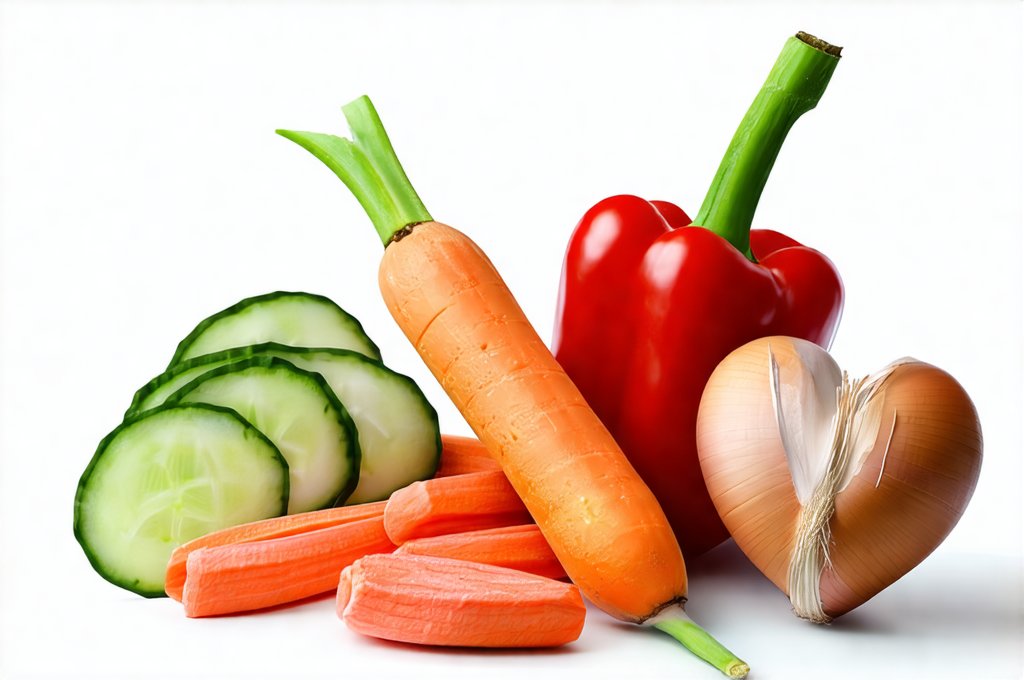Potassium is often overshadowed by its sodium counterpart in discussions about diet and health, yet it plays an absolutely critical role in maintaining overall wellbeing – particularly when it comes to cardiovascular function. Many people are unaware that adequate potassium intake isn’t just about preventing muscle cramps; it’s a cornerstone of healthy blood pressure regulation, nerve transmission, and proper heart rhythm. In modern diets, often characterized by processed foods high in sodium and low in essential nutrients, achieving sufficient potassium levels can be surprisingly challenging, contributing to an increased risk of cardiovascular issues. Understanding which foods naturally boast high potassium content is therefore paramount for proactive health management.
The relationship between potassium and heart health isn’t simply about opposing sodium; it’s far more nuanced. Potassium helps balance the negative effects of sodium on blood pressure, counteracting its influence on fluid retention. This balance supports healthy arterial function and reduces strain on the cardiovascular system. Furthermore, potassium is vital for maintaining the electrical gradients necessary for regular heartbeat. An imbalance can lead to arrhythmias – irregular heartbeats – which, in severe cases, can be life-threatening. Incorporating potassium-rich foods into your diet isn’t about eliminating sodium entirely; it’s about creating a healthy equilibrium that supports optimal cardiovascular performance and long-term health.
The Power of Potassium: How It Supports Heart Health
Potassium is an electrolyte, meaning it carries an electrical charge when dissolved in body fluids like blood. This characteristic is fundamental to its many functions, especially within the heart. The heart muscle relies on precise potassium levels for each contraction and relaxation; these movements are what allow blood to circulate effectively throughout the body. Without sufficient potassium, the heart’s ability to contract efficiently diminishes, potentially leading to weakness or irregular rhythms. Essentially, it’s the quiet conductor of your cardiovascular orchestra.
Beyond direct heart function, potassium plays a significant role in managing blood pressure – one of the biggest risk factors for heart disease. Studies have repeatedly shown that increasing dietary potassium intake can lead to modest but meaningful reductions in both systolic and diastolic blood pressure, even in individuals already taking medication. This is partly because potassium promotes vasodilation – widening of blood vessels – which reduces resistance and allows blood to flow more freely. It also helps the kidneys excrete excess sodium, further contributing to lower blood pressure.
Maintaining adequate potassium levels isn’t simply about avoiding heart problems; it’s about supporting overall cardiovascular resilience and promoting long-term health. It’s a proactive step anyone can take towards a stronger, healthier heart. Remember though, that individual needs vary based on factors like age, activity level and existing health conditions – consulting with a healthcare professional is always advisable to determine the appropriate dietary approach for you.
Potassium-Rich Foods: A Dietary Guide
Navigating the world of potassium-rich foods can feel overwhelming, but it doesn’t have to be. Many readily available fruits and vegetables are excellent sources. Bananas often spring to mind – and rightly so – with approximately 422mg per medium banana, but they aren’t the only game in town! Sweet potatoes, for example, boast even higher levels – around 542mg in a baked sweet potato (with skin). Dark leafy greens like spinach and kale are also nutritional powerhouses, delivering significant potassium alongside a host of other vital nutrients.
Here’s a list of some excellent sources to incorporate into your diet:
– Bananas
– Sweet Potatoes
– Spinach
– Avocados
– White Beans
– Dried Apricots
– Salmon
– Coconut Water
– Tomatoes (especially paste and puree)
Focusing on whole, unprocessed foods is key. Processed foods often contain added sodium that can counteract the benefits of potassium intake. The goal isn’t just to add potassium; it’s to create a dietary balance that supports optimal cardiovascular health. Cooking methods also matter. Steaming or baking vegetables preserves more potassium than boiling, which can leach nutrients into the water.
Maximizing Potassium Intake: Practical Tips
Getting enough potassium doesn’t require drastic changes to your diet. Small, consistent adjustments can make a significant difference. Start by incorporating one potassium-rich food into each meal – for example, adding spinach to your breakfast smoothie, enjoying a sweet potato with lunch, or including salmon in your dinner. Hydration is also crucial, as potassium functions optimally when adequately hydrated.
Here are some ways to increase your intake:
1. Replace sugary drinks with coconut water.
2. Snack on dried apricots instead of processed snacks.
3. Add beans to soups and salads.
4. Choose baked potatoes over fried options.
5. Blend spinach into smoothies or sauces.
It’s also important to be mindful of potential interactions between potassium intake and certain medications, particularly those used to manage blood pressure or kidney function. Some diuretics, for instance, can deplete potassium levels. If you are on medication, discuss your dietary needs with your doctor to ensure a safe and effective approach. Don’t self-medicate or drastically alter your diet without professional guidance.
Understanding Potassium & Kidney Health
The kidneys play a pivotal role in regulating potassium levels within the body. They filter excess potassium from the blood and excrete it through urine, maintaining a delicate balance. Individuals with kidney disease may struggle to effectively regulate potassium, leading to either hyperkalemia (high potassium) or hypokalemia (low potassium). Both conditions can be dangerous and require medical attention.
Because of this intricate relationship, those with known kidney issues need to be particularly cautious about increasing their potassium intake without consulting a healthcare professional. A dietitian specializing in renal nutrition can provide personalized guidance based on individual kidney function and medication regimen. Self-treating or following general dietary recommendations may not be appropriate. Monitoring kidney health through regular checkups is crucial for ensuring safe and effective dietary strategies.
Ultimately, prioritizing potassium-rich foods is an investment in your heart’s long-term wellbeing. It’s about building a sustainable lifestyle that supports cardiovascular resilience and promotes overall vitality.




